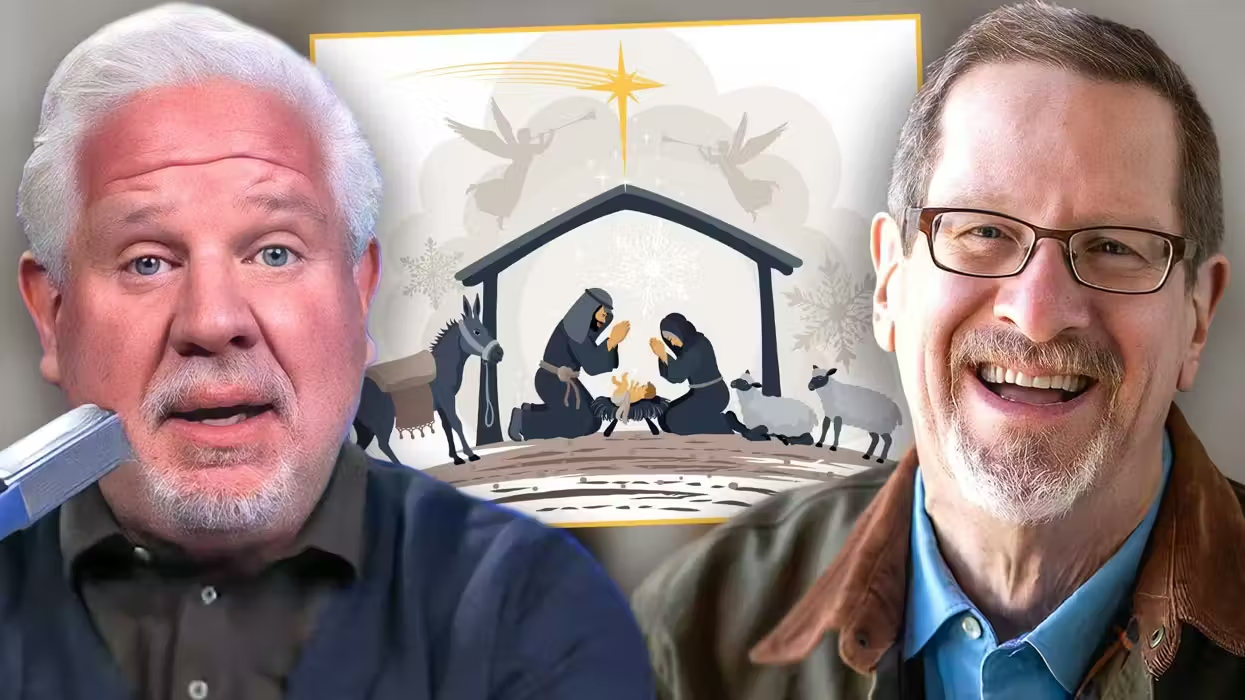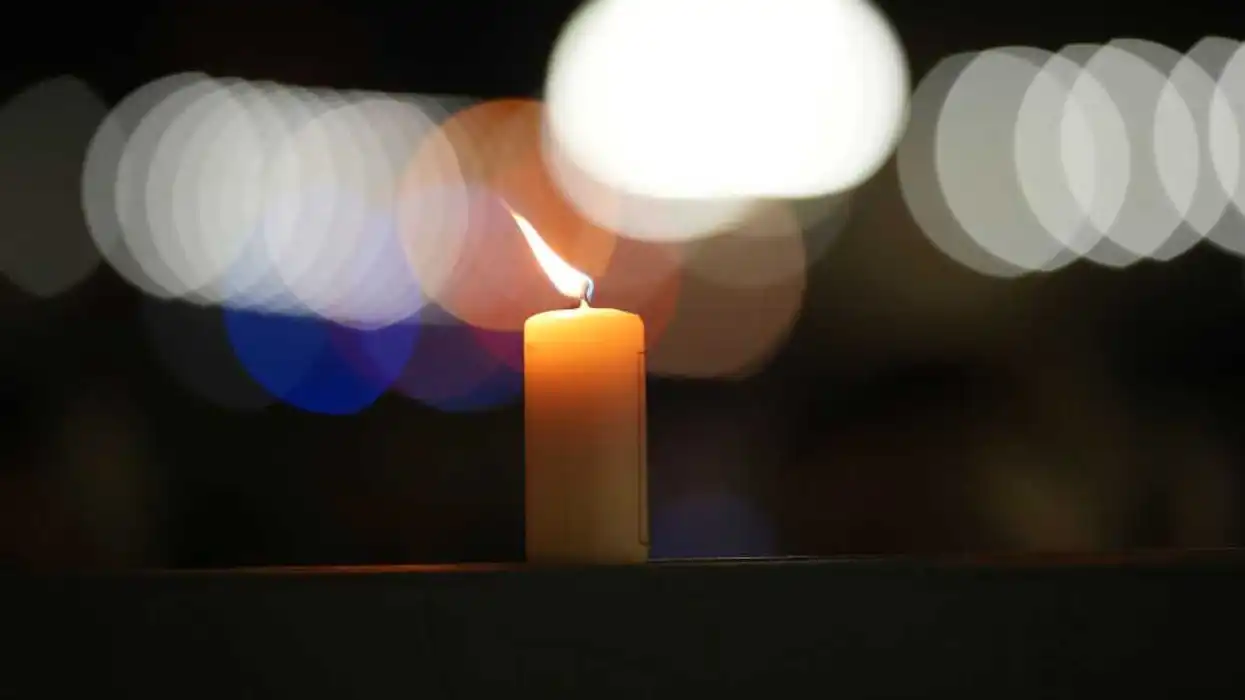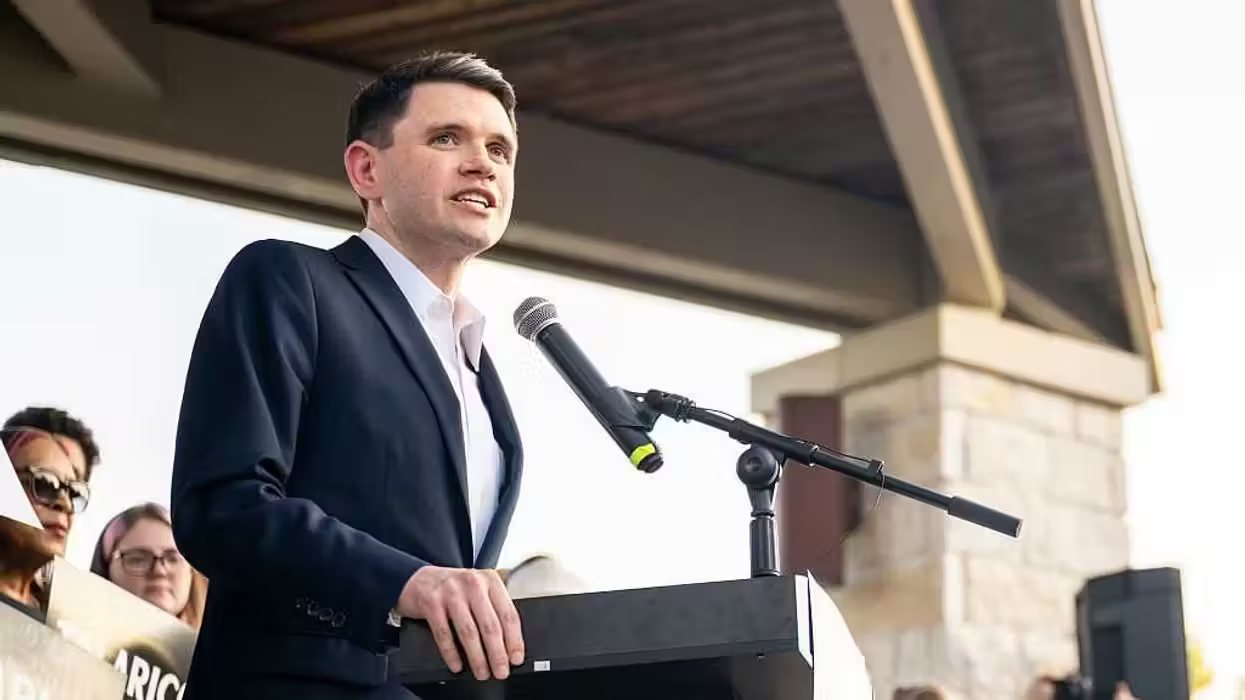
© 2025 Blaze Media LLC. All rights reserved.
From a new book, "Lone Star America"

Prominent Dallas-based talk radio host and political columnist Mark Davis has just released "Lone Star America: How Texas Can Save our Country," an ode to the attitudes, values, and policies of his favorite state.
Born in Texas, raised elsewhere, and now working back home in the Lone Star state, Davis combines an outsider’s perspective and insider’s familiarity in making the case for why Texas should stand as a paragon for the rest of the nation. Here are the top 11 reasons:
1. Decentralized and independent education
"With 254 counties full of schools to fund and no state income tax, Texas welcomes homeowners to the world of ISDs – independent school districts.
The ISD embodies a cherished Texas principle – the best government is the closest government. Austin is better than Washington, your county seat is better than Austin, and your school board is down the road from your house. More than a thousand ISDs provide a patchwork of curricula, rules, and taxing structures that leave decision making almost completely in the hands of neighbors on the local board rather than bureaucrats in the capital."
[sharequote align="center"]"The ISD embodies a cherished Texas principle – the best government is the closest government."[/sharequote]
[On the independence of school curricula] "Try walking into a state department of education in the Pacific Northwest with a suggestion to teach intelligent design. Try offering nuance on church-state separation, the Civil War, or Joe McCarthy almost anywhere else.
Many people who fancy themselves smarter than average are the most hostile to competing views on various issues that are literally or conceptually sacred. Texas won’t settle all of these matters anytime soon. But a diversity of views will be welcomed, allowing more kids more exposure to more views than in states where favored narratives will never be shaken."
2. The Castle Doctrine
"The Castle Doctrine was put on the books in 2007, permitting a resident to use deadly force against anyone who "unlawfully and with force, enters or attempts to enter the dwelling" with the goal of robbery or violence against those inside. For too long, the law required homeowners to wait until violent criminals were inside and acting out their evil intent before doing anything about it. The Castle Doctrine informs every would-be intruder that he might well be greeted by a loaded gun."
3. Law and order
"Crime rates are declining in most states, but in Texas the absolute number of crimes is falling despite a booming population. The state has added eight million people since the mid-1990s. But in 2012 there were 30,000 fewer violent crimes and almost 150,000 fewer property crimes than in 1993. Again, without declaring a necessary cause and effect, I will proudly note that when we find our people who have done bad things, we lock them up with inspiring efficiency.
Many Texans are amused by the suggestion that our high prison population is a problem. We tend to believe that people in prison have done things that earned the trip there."
[sharequote align="center"]"We tend to believe that people in prison have done things that earned the trip there."[/sharequote]
4. The "Merry Christmas" law
 Photo Credit: AP
Photo Credit: AP
"However seriously one takes the annual "War on Christmas," there are episodes from schools to shopping malls every holiday season reflecting someone’s discomfort that someone else might actually be celebrating the birth of Jesus…
Sensing that schools feared litigation if they dared to call a Christmas tree a Christmas tree, legislators crafted a measure to allow references to Christmas – and to Hanukkah and to "the holidays," by the way – while fending off that pesky theocracy that everyone presumes is about to take over whenever this subject comes up.
The law permits public schools to have "scenes or symbols associated with traditional winter celebrations, including a menorah or a Christmas image such as a nativity scene or Christmas tree…." But there is a diversity clause. Any display must include "a scene or symbol of more than one religion or one religion and at least one secular scene or symbol." So, the checklist:
- Nativity scene with a nearby dreidel? All clear.
- Three wise men visiting baby Jesus as Santa and Frosty the Snowman look on? Check.
- Crèche featuring Jesus, Mary, Joseph, and angels? Nope. Somebody run and get an elf and reindeer pronto…
Having to jump through so many hoops just to exercise a little free speech might provoke some justified eye rolling, but there is value in going the extra mile to achieve even-handedness. It manages to restrain both the militant secularists who would drive all references to faith from public life and those who would spread devoutness by the hand of the state."
5. Abortion addressed democratically
[instory-book ISBN="9781621572251"]
"The legislature and governor of Texas accomplished something remarkable in 2013 – they found the middle ground on the most contentious issue in American politics. A sizeable majority of the people of Texas agree with the protections for unborn human life that the state adopted. Pro-lifers hope that the day will come when the state protects the lives of all the unborn, and abortion-rights activists have predictably decried the restrictions as unwarranted infringements on women’s liberty. But pending a change in the Supreme Court and public opinion, the democratic process has found consensus, as it’s supposed to do.
Other states ought to study the Texas abortion statute and try to emulate the achievement. Despite the baseless depictions in the media of a pro-life jihad against women, the actual provisions of the law are modest and in line with public opinion."
6. The right to work
"No employer in Texas may deny a job to an employee who declines union membership. No union dues may be withheld without the worker’s consent. At the same time, the law protects workers who want to organize a union…
Some things are complicated. This is not. Some workers wish to be in unions, others don’t. The best environment is the one in which workers are free to choose. This improves labor relations, improves the business climate, generates jobs, and improves workers’ standard of living."
7. A market-based approach to renewable power
 (Image source: Shutterstock)
(Image source: Shutterstock)
"In a state with vast supplies of reliable and familiar fossil fuels, green energy has to earn its way into the marketplace. And it has. The Left may want to jam wind and solar down the throats of uninterested consumers, but a state with as much sun and wind as Texas is going to find a way to make it profitable. Again, sensible regulation serves us well, because prosperous energy companies are able to invest in renewables. Wind farms have spread across the prairies, lifting Texas to the top of the list of wind-generating states. Reuters reported in February 2013 that wind was approaching a 10 percent share of consumed power in Texas.
Consider Green Mountain Energy, whose name conjures up images of clean air and untouched wilderness. It actually refers to the "Green Mountain State" of Vermont, where the company was born. After struggling in the regulatory environments of California, Ohio, and Pennsylvania, the company packed up its offices and relocated to Texas in 2000. Its mission was to provide renewable energy choices in an open marketplace, but finding a state that offered one wasn’t easy. Green Mountain vice president Helen Brauner says the move to Texas was spurred by the state’s promotion of competition in the power industry, culminating in the deregulation of the industry in 2002. Customers now select from an array of competing companies offering power for homes and businesses. "In Dallas, there may be 30 different rates and all different flavors," Brauner says. "We sell green power.'"
8. Disaster relief coming from charities and individuals, not big government
[Regarding the West Fertilizer Company explosion] "As it turned out, FEMA reversed itself two months later, unwrapping an additional grant of $20 million. But the most important contribution to the recovery of West was the untiring work of residents, volunteers, and charities, near and far, who pitched in with material and moral support, providing the best example of what good people do in tough times.
Relying on those instincts, not taxpayer dollars, is the truest Texas value. In fact, it goes hand in hand with the state’s regulatory stance. If we are going to tell Washington to butt out of our business and personal lives, we had better be ready to live with far fewer of its dollars."
9. Tort reform
"In 2003 … after marathon debates in both houses, the state legislature passed House Bill 4, a sweeping set of reforms that restored balance not just to medical lawsuits but to court cases affecting business in general … HB 4 restored common sense to a system warped by corruption and greed. Liability was limited to the individuals actually at fault, and their liability was limited to their degree of fault. The reform ended the abusive practice of awarding so-called "phantom damages," by which plaintiffs were reimbursed for hypothetical medical bills rather than the bills they actually incurred …
Low taxes, sensible regulation, and limited government will take any state a long way toward prosperity. But if businesses and professionals have to worry about highway robbery at the hands of a rapacious trial bar, a state with the best of intentions will have a hard time equaling the world-class business climate of post-tort reform Texas."
10. [In part as a result of such policies] A powerful economy
 (Image Credit: CNBC)
(Image Credit: CNBC)
"According to Alberto Riva, writing in the International Business Times, if Texas were an independent country, it would be the fourteenth-biggest economy in the world, outpacing South Korea and the Netherlands. Its $1.2 trillion gross domestic product would place it just behind Spain and, ironically enough, just ahead of Mexico."
[sharequote align="center”]"If Texas were an independent country, it would be the fourteenth-biggest economy in the world."[/sharequote]
11. [In part as a further result of such policies] Low cost of living
"Half a million dollars doesn’t get you much house in New York or San Francisco. It can get you five bedrooms on two acres in Texas. Even if you step away from comparisons with America’s most expensive cities, it’s easy to see why people flock here – it’s like getting an instant raise. [west Libertarian economist and author] Tyler Cowen sums up the appeal:
The lower house prices along with a generally low cost of living – helped along by cheap labor, cheap produce and cheap gas (currently about $3 a gallon) – really matter when it comes to quality of life…. Texas has a higher per capita income than California, adjusted for cost of living, and nearly catches up with New York by the same measure. Once you factor in state and local taxes, Texas pulls ahead of New York—by a wide margin. The website MoneyRates ranks states on the basis of average income, adjusting for tax rates and cost of living; once those actors are accounted for, Texas has the third highest average income (after Virginia and Washington State), while New York ranks 36th."
[sharequote align="center”]"Adjusting for tax rates and cost of living ... Texas has the third highest average income."[/sharequote]
Note: The link to the book in this post will give you an option to elect to donate a percentage of the proceeds from the sale to a charity of your choice. Mercury One, the charity founded by TheBlaze’s Glenn Beck, is one of the options. Donations to Mercury One go towards efforts such as disaster relief, support for education, support for Israel, and support for veterans and our military. You can read more about Amazon Smile and Mercury One here.
Want to leave a tip?
We answer to you. Help keep our content free of advertisers and big tech censorship by leaving a tip today.
Want to join the conversation?
Already a subscriber?
more stories
Sign up for the Blaze newsletter
By signing up, you agree to our Privacy Policy and Terms of Use, and agree to receive content that may sometimes include advertisements. You may opt out at any time.
Related Content
© 2025 Blaze Media LLC. All rights reserved.
Get the stories that matter most delivered directly to your inbox.
By signing up, you agree to our Privacy Policy and Terms of Use, and agree to receive content that may sometimes include advertisements. You may opt out at any time.






